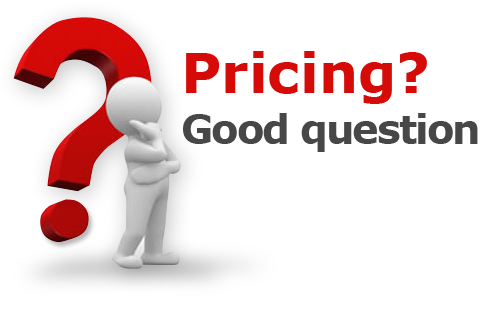 Choosing a pricing strategy can be one of the most important decisions a business owner makes. It is intrinsically linked to income, profitability, sales volume and market share, and can ultimately affect the life of a business.
Choosing a pricing strategy can be one of the most important decisions a business owner makes. It is intrinsically linked to income, profitability, sales volume and market share, and can ultimately affect the life of a business.
It can be difficult to decide which pricing strategy best fits with your business model: premium pricing, penetration pricing, price skimming, cost plus pricing, product bundling… and the list goes on! In very broad terms, the market can be divided up into:
- 1/3 who are price sensitive (not loyal)
- 1/3 for whom price and quality are part of several deciding factors (semi-loyal)
- 1/3 who are content to pay premium pricing as it is not a deciding factor (loyal)
Premium Pricing
Premium pricing strategies work best when there is a unique attraction, point of difference and/or lack of competition. Although profit margins will increase, you run the risk of these being offset by declining sales volumes. Your customers must consider your offering to be differentiated enough to pay premium prices, otherwise declining sales will lead to reduced income and cash flow problems. For service businesses in particular, brand and reputation play an important role in the success of this strategy.
Discount Pricing
A strategy of pricing a product or service below market rate can be effective when introducing new products/services to break into a market and aggressively build market share. But it can seriously impede cash flow and therefore have major consequences on profitability.
Discounting can also impact on your brand and existing customers. It poses the risk of a perceived drop in quality in line with the drop in price. It can raise doubts as to how good a business really is if it needs to engage in a competitive price war to get customers, thereby negatively impacting on brand and reputation.
Discount pricing strategies can lead to customer retention problems when prices are put back to normal market rates. This may not be an issue when the business has provided value over and above the price, such as exceptional service, convenience or technical knowledge. In fact, this can inspire loyalty and customer retention in spite of subsequently raised prices. However, if no value has been provided – from the customer’s perspective – then there is nothing to stop customers from shopping around for the next competitive deal.
Hook And Captive Pricing
Beware, too, of using pricing strategies with hooks, for example discounted prices based on certain terms like fixed contracts, or captive pricing where a base product is priced low but the necessary extras or parts are priced higher to recoup lost margin. A bank offering an attractive cash back incentive on new home loans in return for signing for a minimum of 3 years isn’t encouraging customer retention – it’s enforcing it while implying they have no other reason for customers to stay loyal to them.
Most consumers are savvy and informed enough to recognise a discounted price which has a sting in its tail. Offers with hooks do nothing to encourage satisfaction or loyalty, and again can cause serious damage to the business’ brand and reputation.
You Get What You Pay For
All successful businesses have a product or service that is differentiated in some way from its competitors. Competing on price is a risky game if the substance isn’t there to back it up. Think of the old saying: “you get what you pay for” in terms of high value products or services. If a professional services firm were to offer their services at a heavily discounted rate, what message would that send about the quality of those services?
Medical specialists, for example, train for years to become experts in their field. They charge premium prices for their time, never offer free consultations and don’t lock you into fixed contracts for special rates. Patients go to specialists because they need their expertise and trust them to advise and treat them. If a specialist offered discounted rates would that inspire the same level of trust? Or would it make you wonder why they needed to campaign for new patients by competing on price?
Debbie Robson is Marketing Coordinator at UHY Haines Norton.
